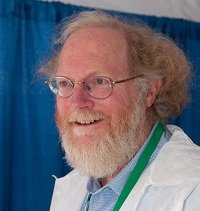Stephen Eubank is a Professor in the Biocomplexity Institute and in the Department of Public Health Sciences at the University of Virginia. He holds a B.A. from Swarthmore College and a Ph.D. from the University of Texas at Austin, both in Physics. His path has included positions as: postdoctoral associate at the La Jolla Institute and at Los Alamos National Laboratory, affiliate of the Santa Fe Institute, co-founder of Prediction Company, researcher at Biosphere 2, Visiting Scientist at Advanced Telecommunications Research International in Kyoto, member of the technical staff at Los Alamos, and tenured Professor at Virginia Tech and the University of Virginia. His research has been supported by DoD, IARPA, USAID, NSF, CDC, and NIH. He served on an NIH Blue Ribbon Panel recognized for “exceptional service and dedication in providing technical expertise and guidance to the Director.” Dr. Eubank's work – over 200 publications with over 14,000 citations – includes statistical physics and field theory, nonlinear dynamics and chaos, time series analysis and machine learning applied to financial markets, natural language processing, and, for 25 years, network science applied to pressing problems in regional and national scale socio-technical systems. His research focuses on high-performance computer simulations that follow the interactions among billions of things in detail. They provide the best way to understand the macroscopic implications of assumptions about microscopic behaviors in heterogenous, but not entirely random, systems. He advocates using these methods to strengthen the evidence base for planning and policy formation in many areas. He is especially interested in infectious disease epidemiology, where such simulations span the chasm between individuals' behaviors, lived experiences, and immune responses and the population-level effectiveness of measures taken to control the spread of disease. He has pursued this goal both as the principal investigator for one of three original research groups in the National Institute of General Medical Science's MIDAS (Modeling Infectious Disease Agent Study) research network and as a member of the Biocomplexity Institute's diverse team of researchers advising state and national policy-makers on responses to pandemic influenza, Ebola, and COVID-19. He is looking forward to gaining a more nuanced appreciation of how state-of-the-art research in academia can support decision-making in government.
Department of State Profile
Undersecretary for Economic Growth, Energy, and Environment
Bureau of Oceans and International Environmental Scientific Affairs
Stephen serves as a Foreign Affairs Officer in the Office of International Health and Biodefense (IHB). IHB leads Department efforts on health security preparedness, as well as pandemic and outbreak response, and collaborates with other offices and regional bureaus to strengthen the capacity of other countries to prevent, detect, and respond to infectious disease outbreaks. Stephen supports IHB efforts to advance science and data-driven decision making to strengthen global health security, including promoting vaccine confidence; increasing international coordination; advocating multi-sectoral approaches to One Health; advancing global norms on scientific data sharing and disease surveillance; and increasing the international community’s commitment to build capacities to better prevent, detect, and respond to global health threats. In addition, Stephen works to engage academic scientists in science diplomacy and to build and maintain research networks among U.S.-sponsored foreign researchers in low- and middle-income countries, especially in Southeast Asia.
|




